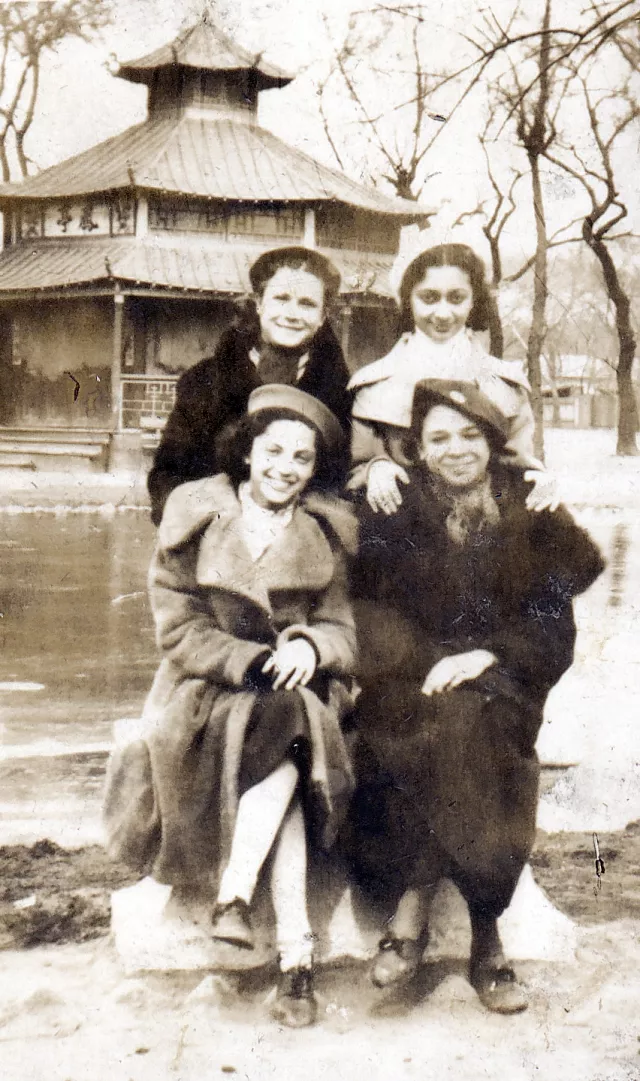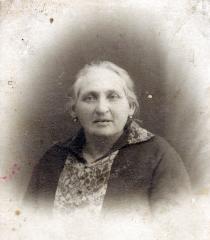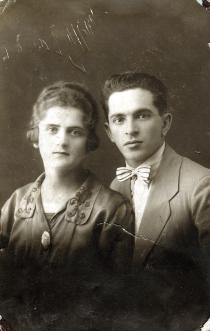Sarah Liberman and classmates in Harbin
Here I am with my classmates Fira, Galia and Anna at a park in Harbin, before we all went our separate ways. Fira went to France and Galia to the United States. Anna stayed in Harbin. I was born in Harbin in 1923 and lived there until 1938. We moved to Shanghai after fascist organizations appeared in Harbin. I went to the English school in Harbin and later to the Jewish school in Shanghai. I had music lessons at home, and my father had dreamed that I would graduate from the Academy of Music and become a pianist. After finishing school, I completed a shorthand and typing course and worked as a secretary in an American firm in Shanghai.
I met my future husband, Paul Zauer, in Shanghai in 1942 at an open-air café. My relatives did not like the fact that he was Russian, and his relatives did not like the fact that I was Jewish. For us, it did not matter. Paul and I were married for 44 years. The national question was never a cause of quarrel and difference of opinions between us.
Paul and I were active members of the Soviet club in Shanghai. It was a very interesting and merry place. After the victory in Germany, later in Japan, the prestige of the Soviet Union grew, especially among the Russian-speaking population of China. In 1948, the Soviet Government said all interested Russian-speaking people could depart for the USSR. We decided to go to this remarkable country, which defeated fascism, where all people had equal rights and all people were heroes. We were not afraid of the difficulties. Instead of Vladivostok, our ship arrived in the port Nakhodka. We were told: 'Choose! Siberia or the Urals.' We were afraid of Siberia and we decided to go to the Urals. We lived through this period thanks to my mother. She went shopping, stood in lines, bought food, sold our things - our clothes, porcelain - prepared meals, looked after my child, and encouraged us with Jewish humor.
Our neighbors in the Urals had been deported from Estonia. They helped our family assimilate to the new conditions of our everyday life. After the amnesty in 1953, our Estonian friends went back to Estonia. They said we should go live there. From 1953, we too could move wherever we liked, except the capital cities. So we found ourselves in Estonia, in the town Kohtla-Jarve, where I have been living since 1953. We would probably be fully assimilated by now, if it were not for my mother. She lived with us until her death in 1962. She kept the house, and helped us bring up our son. She didn't let us forget that we were Jews. She told our son about her family, Jewish traditions and holidays; she cooked Jewish dishes. Thanks to my mother, my son and his children realized that they are Jews.

























